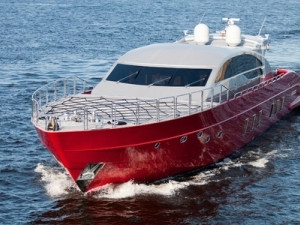
The South African Maritime Safety Authority (SAMSA) has completed a small vessel tracking trial using Advanced Class B Satellite-Enabled AIS (ABSEA) technology.
The trial was done in partnership with exactEarth Europe, a provider of global maritime vessel data for ship tracking and maritime situational awareness solutions. It was part-funded by the UK Space Agency (UKSA) under its International Partnership Space Programme (IPSP).
SAMSA is accountable to the minister of transport, and was established in 1998 to promote SA's maritime interests and development. A key aspect of SAMSA's mandate is to ensure safety of life at sea, including small vessels in the fisheries, leisure marine and workboat sectors.
It notes vessels, particularly artisanal fishing boats, typically operate without a tracking system onboard, making it difficult for the authorities to locate them if they are involved in an accident at sea.
With IPSP funding, exactEarth Europe and its partners SRT Marine Technology and Marine Data Solutions were able to carry out sea trials in SA designed to support long and short range small vessel tracking.
The ABSEA Identifier is battery-powered and can easily be fitted onto very small boats with little or no on-board infrastructure. It transmits standard Class B AIS position reports that can be detected by coastal AIS systems, but it is also enhanced to maximise its ability to be detected by exactEarth's satellite AIS constellation.
This ensures a boat can be tracked both inshore and offshore and those locations where coastal AIS is not available. Both the identifier's satellite and coastal position reports are provided as standard AIS messages for integration into third-party maritime domain awareness systems, as well as being viewable in exactEarth's 'ShipView' data visualisation tool.
"The extensive trial activity being conducted in South Africa is a very important step in the validation and introduction of our small vessel tracking solution," says Peter Mabson, CEO of exactEarth.
"The work on the project to deploy this product in a real world environment and to get critical feedback from a range of actual users who face these real world issues is invaluable as a major step in the market introduction process for this exciting new capability. We would sincerely like to thank SAMSA for their support and feedback related to the project and to UKSA for providing the funding and oversight for this important activity. We also look forward to taking this activity to the next level as an operational capability in South Africa and to thereby make a meaningful contribution to the improvement of maritime safety."
Captain Karl Otto, executive head, Centre for Sea Watch and Response at SAMSA, says the project, through the use of the identifiers, provided very valuable information to SAMSA related to the capability of detecting, tracking and monitoring of small vessels in the trial areas.
"A debt of gratitude goes to the UK Space Agency as sponsor for this trial in South Africa, and to SRT Marine as well. Also, our thanks goes to exactEarth Europe for making the trial a reality, to Marine Data Solutions for their full support and to our SAMSA colleagues who participated in and supported the concept of the project in the trial areas.
"The trial proved to be very beneficial in addressing the problem of detecting and identifying small boats along the coastline, primarily for SAMSA's maritime safety purposes."
The trial is expected to be concluded by September.
Share